
Mary Flannery O'Connor was an American novelist, short story writer and essayist. She wrote two novels and 31 short stories, as well as a number of reviews and commentaries.

Frank Yates FRS was one of the pioneers of 20th-century statistics.
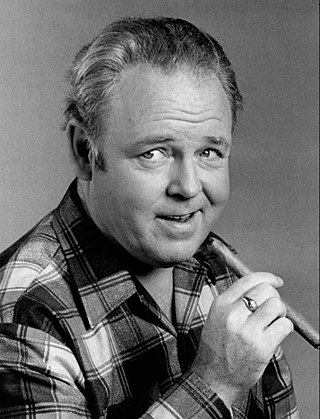
John Carroll O'Connor was an American actor whose television career spanned over four decades. O'Connor found widespread fame as Archie Bunker, the main character in the CBS television sitcoms All in the Family (1971–1979) and its continuation, Archie Bunker's Place (1979–1983). O'Connor later starred in the NBC/CBS television crime drama In the Heat of the Night (1988–1995), where he played the role of police chief William "Bill" Gillespie. In the late 1990s, he played Gus Stemple, the father of Jamie Buchman on Mad About You. In 1996, O'Connor was ranked number 38 on TV Guide's 50 Greatest TV Stars of All Time. He won five Emmys and one Golden Globe Award.
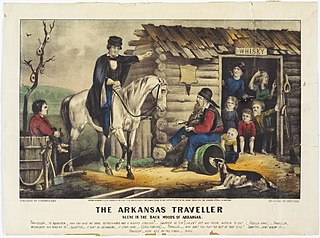
Edward Payson Washburn also known as Edward Payson Washbourne, was an American painter. He was the son of Christian missionary Cephas Washburn. He is best known for his painting, The Arkansas Traveller (1856). During the Antebellum era, he was one of the most notable painters in the state of Arkansas.
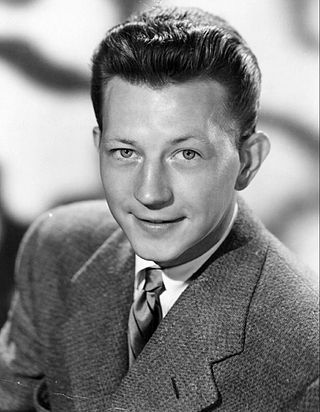
Donald David Dixon Ronald O'Connor was an American dancer, singer and actor. He came to fame in a series of films in which he co-starred, in succession, with Gloria Jean, Peggy Ryan, and Francis the Talking Mule.
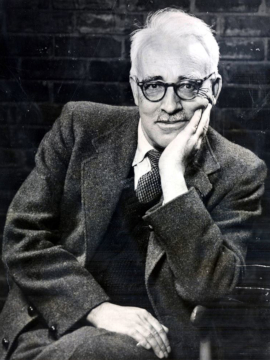
Frank O'Connor was an Irish author and translator. He wrote poetry, dramatic works, memoirs, journalistic columns and features on aspects of Irish culture and history, criticism, long and short fiction, biography, and travel books. He is most widely known for his more than 150 short stories and for his memoirs. The Frank O'Connor International Short Story Award was named in his honour.
Edwin Greene O'Connor was an American journalist, novelist, and radio commentator. He won the Pulitzer Prize for Fiction in 1962 for his novel The Edge of Sadness (1961). His ancestry was Irish, and his novels concerned the Irish-American experience and often dealt with the lives of politicians and priests.
The Walkerton E. coli outbreak was the result of a contamination of the drinking water supply of Walkerton, Ontario, Canada, with E. coli and Campylobacter jejuni bacteria. The water supply was contaminated as a result of improper water treatment following heavy rainfall in late April and early May 2000, that had drawn bacteria from the manure of nearby cattle used to fertilize crops into the shallow aquifer of a nearby well. The first reported case was on May 17. The contamination caused gastroenteritis and sickened more than 2,000 people and resulted in seven deaths.

The Dreamer of Oz: The L. Frank Baum Story is a 1990 American made-for-television biographical film starring John Ritter as Lyman Frank Baum, the author who wrote the 1900 novel The Wonderful Wizard of Oz and thirteen other Oz books. Also starring in it were Annette O'Toole as Baum's supportive wife, Maud, and Rue McClanahan as Baum's tough mother-in-law, Matilda Gage.

James Farl Powers was an American novelist and short story writer who often drew his inspiration from developments in the Catholic Church, and was known for his studies of Catholic priests in the Midwest. Although not a priest himself, he is known for having captured a "clerical idiom" in postwar North America. His first novel, Morte d'Urban, won the 1963 National Book Award for Fiction.

Loren Keith Wiseman was an American wargame and role-playing game designer, game developer and editor.

David John Constantine is an English poet, author and translator.

Francis is a 1950 American black-and-white comedy film from Universal-International that launched the Francis the Talking Mule film series. Francis is produced by Robert Arthur, directed by Arthur Lubin, and stars Donald O'Connor and Patricia Medina. The distinctive voice of Francis is a voice-over by actor Chill Wills.

Francis Goes to the Races is a 1951 American black-and-white comedy film from Universal-International, produced by Leonard Goldstein, directed by Arthur Lubin, that stars Donald O'Connor, Piper Laurie, and Cecil Kellaway. The distinctive voice of Francis is a voice-over by actor Chill Wills.
The Frank O'Connor International Short Story Award—named in honour of Frank O'Connor, who devoted much of his work to the form—was an international literary award presented for the best short story collection. It was presented between 2005 and 2015. The prize amount, €25,000 as of 2012, is one of the richest short-story collection prizes in the world. Each year, roughly sixty books were longlisted, with either four or six books shortlisted, the ultimate decision made by three judges.

The Stories of Frank O'Connor is a 1952 short story collection by Frank O'Connor featuring both old and new stories.
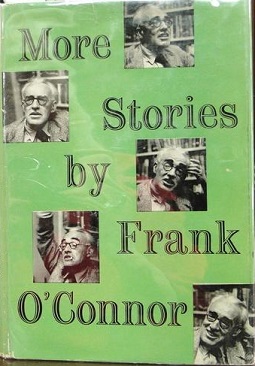
More Stories by Frank O'Connor is a 1954 short story collection featuring both old and new stories by the Irish writer Frank O'Connor. A similar collection was published in the U.K. in 1964 as Collection Two.

A Frank O'Connor Reader is a compilation of works by the Irish writer Frank O'Connor selected and edited by Michael A. Steinman, and it includes short stories, autobiographical pieces, translations of Irish-language poetry, and essays on topics from politics to literary criticism.
William Francis "Zeke" O'Connor, Jr. was an American football end who played five seasons in the All-America Football Conference (AAFC) and Canadian Football League (CFL) in the late 1940s and early 1950s. After retiring, O'Connor went into business and devoted himself to helping Nepalese Sherpas.
The Drunkard is an 1844 American temperance play.















